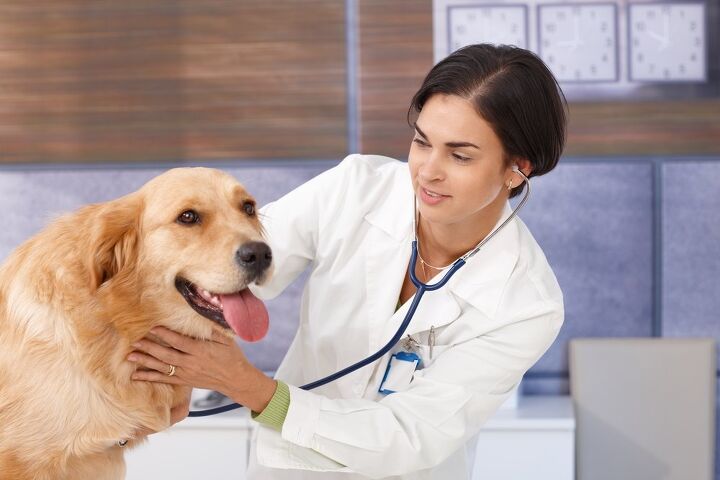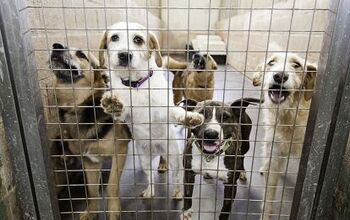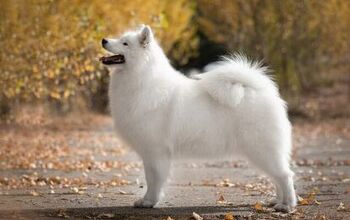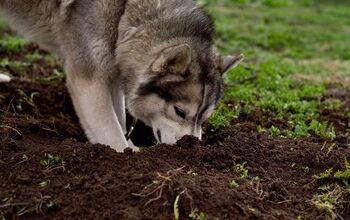Take The Itch Out Of These Common Dog Allergies

Just like people, dogs can also be prone to allergies. And they are just as annoying – they can cause skin irritation, coughing, sneezing, runny eyes and inflammation. If you think your dog is suffering from allergies, you should take her to the vet as soon as possible. There are many courses of treatment for common dog allergies and you’ll be able to discuss what course of treatment is best for your dog. Let’s go over the most common dog allergies you’ll come across, what kind of symptoms you can expect to see and what you can do about them.
Also known as Flea Allergy Dermatitis (FAD), this type of allergy is caused by flea saliva. If you’ve ever been bit by a flea, you know how much it itches. But when your dog has a flea allergy, this can cause more than just an irritating itch. Even a couple of fleas can turn into something more serious. Constant itching can make your dog scratch the skin off her body, which causes bleeding, scabbing and fur loss.
Treatment: During flea season, brush or comb your dog every day to catch and kill those little critters. A soothing bath will also help her itchy skin. You can also use natural ( garlic) or chemical flea treatments and controls (Advantage, Seresto and FRONTLINE are popular treatments), or oral flea preventives (Comfortis) to stop those fleas from biting.
Out of all of the allergies a dog can suffer from, these are the most common. Pollen, dust mites, grass, mold – these are just a few of the things that can set off an allergic reaction in your dog. If you think that environmental factors are causing your dog discomfort, your vet will be able to give you an affirmative answer with a simple blood or skin test.
An environmental allergy can be seasonal or year-round. A year-round allergy is most likely caused by something in your home. If it’s seasonal, chances are she’ll react to something outdoors. Finding out what is causing this allergy is key in determining a course of treatment.
Treatment: Use non-toxic cleaning solution in your home and purchase an air purifier. Simple and inexpensive antihistamines (Benadryl) can often clear up the problem, but for extreme allergies, your dog may need stronger prescription medications, such as steroids, which your vet will prescribe.
You may not even know that your dog as a food allergy – that’s how sneaky this one is. Just a few of the symptoms to keep an eye out for include itchy or oozing skin, irritated eyes, nasal discharge, inflamed ears and swollen paws. The most common dog allergies when it comes to food are beef, corn, wheat, soy, eggs and milk.
Treatment: Dogs can develop an allergy to food over time, so you’ll need to change up her food if this is the source of the allergy. In most cases, you’ll need to put your dog on an elimination diet, where you’ll take out certain foods and put her on hypoallergenic food for eight to 12 weeks. This will help clear out your dog’s digestive tract and detox her system. After a few months, you’ll be able to reintroduce her to certain foods one at a time to see how she reacts. Your vet may also suggest a supplement that can help with digestive and immune system function.
Does your pooch suffer from these common dog allergies? What do you do to combat or relive these irritants? Please leave your tips in the comment section below.

Amy Tokic, Editor of PetGuide.com, is a passionate animal lover and proud pet parent of Oscar, a Shih Tzu/Chihuahua cross, and Zed, a Japanese Chin. Her love of animals began in kindergarten, when she brought her stuffed dog Snoopy into class with her every day. Now, she writes about her adventures in pet ownership and tirelessly researches products, news and health related issues she can share with other animal enthusiasts. In her free time, Amy loves perusing used book and record stores, obsessing over the latest pet products available and chasing squirrels with wild abandon (a habit attributed to spending too much time with her pooches).
More by Amy Tokic






















